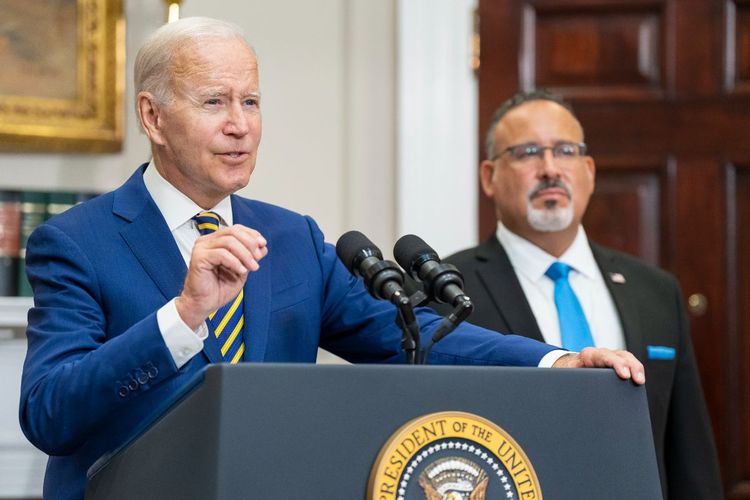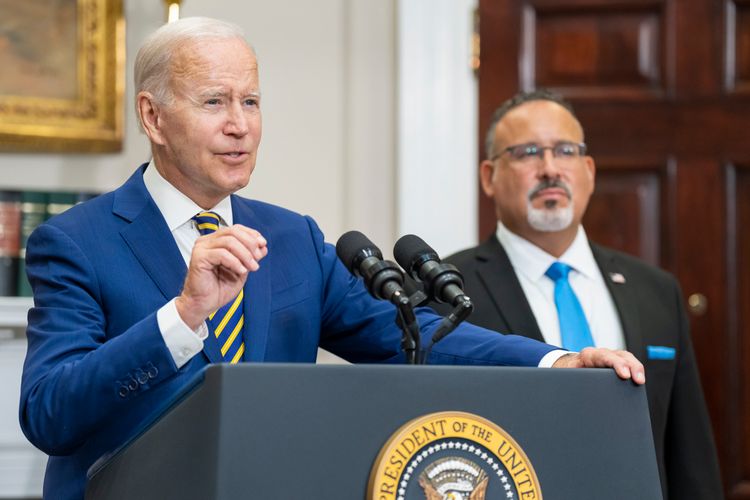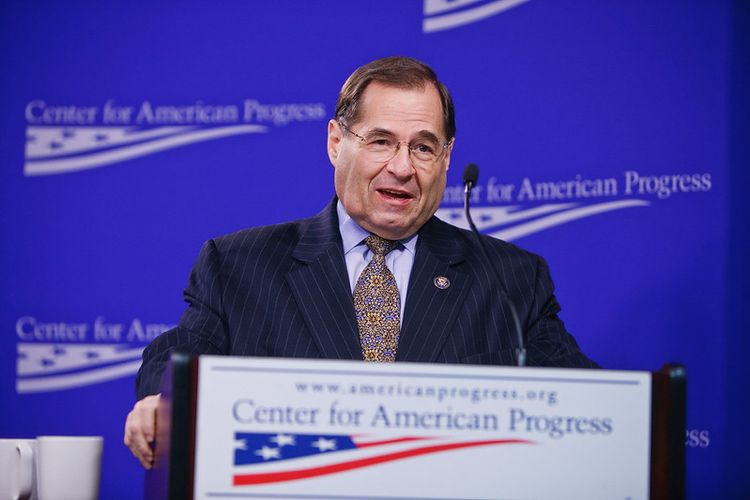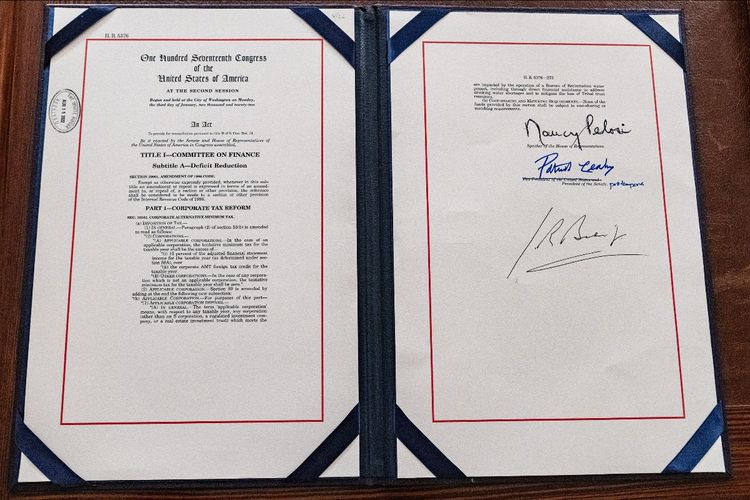Wake Up To Politics - August 11, 2022
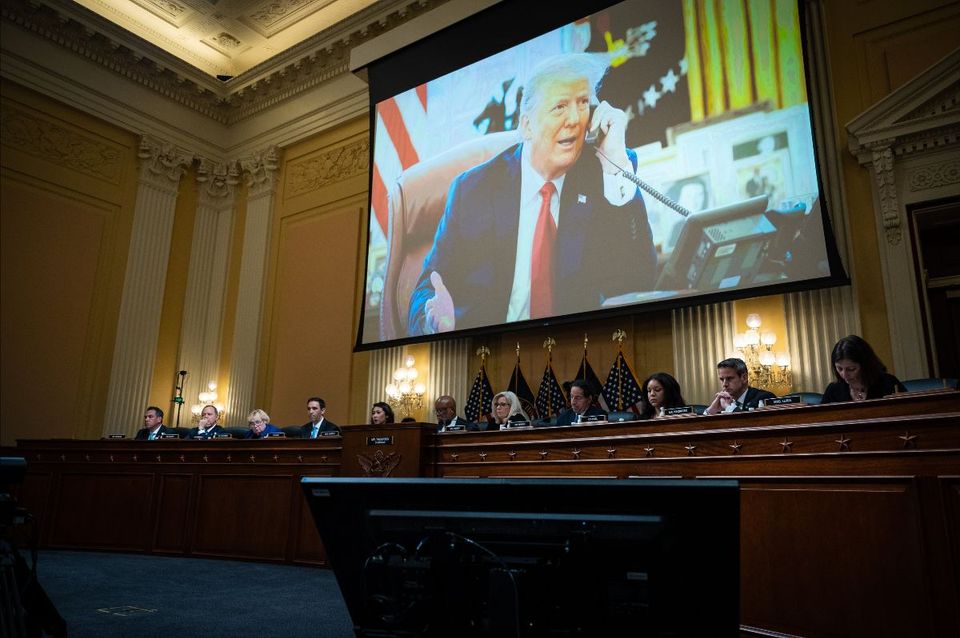
by Gabe Fleisher
Good morning! It’s Thursday, August 11, 2022. Election Day 2022 is 89 days away. Election Day 2024 is 817 days away.
From time to time, I like to answer reader questions here in the newsletter — figuring that if one person is wondering about something, then maybe others of you are too and would appreciate seeing an answer.
I took a few questions in yesterday’s newsletter, but with both Congress and the president on vacation, I thought this would be a good day to dive in and address some more.
Many of these questions are about the nitty-gritty of how Washington really works, exactly the type of thing I like to focus on in this newsletter.
Some of you have written in and told me that you see WUTP as something of a rolling civics class, filling in the holes on things about our government that you may have wondered but never learned. I love that idea — and want to keep that going here by answering a few questions that hopefully lift the curtain and help you better understand your government.
Ask Gabe: Summer mailbag edition
Let’s take a look at a few more questions I’ve received recently from readers:
The future of the January 6 committee
Laura asks: “What happens to the Jan. 6 panel if Republicans win the midterms?”
The January 6 committee is a “select committee,” which means — unlike a permanent “standing committee,” such as Approriations or Judiciary — it was always intended to be temporary in nature. Under the terms of the resolution that created it, the committee is set to dissolve 30 days after the release of its final report, which is expected in December.
That means, if Republicans take control of the House in January, the party will have the choice of either renewing the panel’s charter or just letting it expire. You might expect them to automatically take the latter route — but some Republicans are actually pushing to keep the select committee in place, so they can repurpose it in service of their own related investigations.
Per CNN, a revamped GOP-led January 6 committee would focus on investigating topics like Capitol security failures during the riot (which they’d try tying to Nancy Pelosi) and the treatment of rioters who have been jailed. And it might even investigate the Democratic-led iteration of the committee, with some lawmakers floating subpoenas of members like Rep. Liz Cheney (R-WY).
In any event, I’d definitely expect Republicans to launch select committees of their own even if the January 6 one lapses. Just this week, Rep. Lauren Boebert (R-CO) called for one to investigate the FBI raid at Mar-a-Lago, while Rep. Matt Gaetz (R-FL) said there were plans for another to probe Hunter Biden.
Something else to watch for: Republicans adopting the tactics of the January 6 committee in their many planned investigations. Novel moves like kicking Republican members off the panel, subpoenaing members of Congress, going after bank and phone records, and holding carefully choreographed primetime hearings — all of those could become common parts of congressional probes now that Democrats have set the precedents.

Military promotions
This question comes in response to last Friday’s newsletter, where I reported that the Senate had confirmed Michael Langley as the first Black four-star general in Marine Corps history.
Shannon asks: “I thought military promotions were ‘in-house’ within the military. I am very pleased to see the historic confirmation of Gen. Langley to 4 stars, but I had no idea that he had to be confirmed by the Senate. Is this for generals/admirals at all ranks or just the top? So what does a possible 5-star go through?”
Per Article II of the Constitution, all “Officers of the United States” must be nominated by the president and then confirmed by the Senate — and that includes military officers as well as the Cabinet secretaries and agency heads we normally think of as requiring Senate approval.
In practice, all officers ranked O-4 and above have to go through the confirmation process: that’s all majors, colonels, and generals in the Army, Air Force, Marine Corps, and Space Force, and all commanders, captains, and admirals in the Navy and Coast Guard.
Generally, though, the promotions are decided on “in-house” and then long lists of them are confirmed by the Senate en masse by voice vote. (As for five-stars: Promotions tend to stop at the four-star rank for generals and admirals. There is a five-star rank, but it has only been used nine times in history, most recently for Omar Bradley in 1950)

Reconciliation package
This next question is about the Inflation Reduction Act, the Democratic reconciliation package that passed the Senate on Sunday and will be voted on by the House tomorrow.
Christopher asks: “I thought tax/spend legislation was supposed to start in the House. Is that different for this bill?”
That is true and this bill is no exception. But to get around that requirement, the Senate often uses bills previously passed by the House and replaces them with a substitute amendment to put in what the Senate wants to pass — while still using the House-passed shell to ensure that the measure technically originated in the lower chamber. Then, the Senate can pass the amended House bill and send it over to the House to be voted on again, but this time with the text the Senate wanted in it.
In this case, as you can see here, the Inflation Reduction Act was passed in the shell of H.R. 5376 — which actually was originally the “Build Back Better Act,” the Democrats’ original attempt at a reconciliation bill (which passed the House back in November 2021, although it has been completely rewritten since then). Now that the Senate has passed its own amended version of the House-originated bill, the House can vote on it again and then send it to President Biden’s desk.

Covid in Congress
Jim asks: “It seems that one after another Democrat is coming down with Covid, but I don't hear anything about Republicans getting it. Any insight on this? Am I just missing it? Or are they not talking about it? Or aren’t they getting it?”
There are certainly some Republican members of Congress testing positive for Covid — Sen. John Cornyn (R-TX) just got out of quarantine, for example — but it’s true that there have recently been more positive tests among Democrats than Republicans. Per GovTrack, of the 32 lawmakers who have tested positive since May, just six (including Cornyn) have been Republican.
Why is that? It’s possible that some Republicans are testing positive without disclosing it (especially during recess, this would certainly be doable), but I think the simpler explanation is just that Republicans are not taking tests as frequently as Democrats. There could be a myriad of reasons behind that divergence — both personal and systemic — but one important detail to note is that guests at the White House have to take Covid tests before meeting with the president or vice president.
A lot more Democrats meet with Biden and Harris than Republicans, so it’s possible that test-taking regimen leads to a lot more Democratic Covid cases being detected. There’s no comparable situation where such a large number of Republicans would be required to routinely test for Covid.
It should be noted, though, that Democrats might now be taking a page from their GOP colleagues’ playbook: per Puck News, Senate Democrats “adopted an unofficial ‘Don’t Test, Don’t Tell,’ protocol” ahead of last weekend’s reconciliation vote, quietly discouraging each other from Covid testing to ensure they’d have full attendance to carry the bill over the finish line.

Inside the press corps
Billie asks: “I am curious about who travels with the President on Air Force One. For example, when the press secretary does a ‘press gaggle’ how many journalists are traveling with the president and how are they selected?”
There are 13 press seats on the president's plane, and they are given to one reporter each from the three wire services (the Associated Press, Reuters, and Bloomberg), one television reporter, one radio reporter, one newspaper reporter, one magazine reporters, and then four photographers for the radio and newspaper outlets and two crew members for the TV outlet.
These 13 reporters make up the president’s “protective pool” for the day, and the non-wire outlets rotate “pool duty” amongst themselves to divvy up the work, so it depends on the day which specific outlets will have a reporter in those seats. The White House Correspondents’ Association (which is run by journalists) sets the pool assignments in advance. These are the journalists who participate in the gaggles held aboard AF1 during those flights — and who participate in off-the-record chats with the president that sometimes take place during such trips.
The news outlets do have to pay for their reporters’ tickets — and not a small amount — although for the seats that are shared between outlets of the same medium, the fare for those tickets is split among the outlets in question. For longer international trips, the White House will often charter an additional plane for reporters outside of the protective pool to tag along — but again, the news outlets that join have to split the hefty cost.

More news you should know
— Inflation slowed down last month. U.S. prices were up 8.5% in July from the year before, according to a Labor Department report on Wednesday, a slower pace of inflation compared to the 9.1% year-over-year increase recorded in June.
On a month-to-month basis, overall prices stayed flat between June and July, compared to the 1.3% increase between May and June. While food and rent prices continued to rise, gas prices fell 7.7% from the month before, as the national average drops below $4 for the first time since March.
— Former President Donald Trump invoked his Fifth Amendment right against self-incrimination 400 times during a Wednesday deposition with New York attorney general Letitia James’ office.
James, who has been leading a years-long investigation into the Trump Organization, reportedly sat across Trump during the four hours of questioning as he said “same answer” again and again, taking the Fifth each time.
Trump said in a statement that he had “no choice” but to take the Fifth, calling the investigation “an unfounded, politically motivated Witch Hunt.”
— The Justice Department charged an alleged Iranian operative on Wednesday, accusing him of plotting to assassinate former Trump national security adviser John Bolton in retaliation for the 2020 killing of Iranian general Qasem Soleimani.
The suspect remains at large. According to Axios, former Secretary of State Mike Pompeo was also a target of the plot.

What’s going on today in Washington
All times Eastern.
President Joe Biden is on vacation in Kiawah Island, South Carolina. He has no public events scheduled.
Vice President Kamala Harris is in San Francisco. She will participate in a press call on investments in tribal broadband (4:25 pm) and host a roundtable discussion with California state legislators on abortion (5:05 pm).
White House press secretary Karine Jean-Pierre does not have a press briefing scheduled.
The Senate is on recess until September 6.
The House is on recess until Friday.
The Supreme Court is on recess until October.
Before I go...
Here’s a non-political news story I enjoyed (and it also doubles as good advice): “For Instant Happiness, Grab a Book and Head Outside,” from the New York Times.
For those looking for recommendations, I just started “First Principles: What America's Founders Learned from the Greeks and Romans and How That Shaped Our Country” by Thomas Ricks, and I’ve been enjoying it so far (outside when I can!)
Corrections
Two typos in Wednesday’s newsletter I want to correct: I should have written that the Democratic reconciliation package would make vaccines free for Medicare recipients in 2023, and that Symbicort — one of the drugs that could be affected by the measure — treats asthma and COPD.
Also, to clear up a detail from Tuesday’s newsletter: After the GOP victory in this week’s special election in Minnesota, the number of members Democrats can afford to lose in close House votes will stay at four.
My apologies for these errors and my thanks to the readers who caught them.
That’s it for today. If you enjoy Wake Up To Politics, it’s always appreciated if you donate to support the newsletter or buy some merch. Or if you tell your friends and family to sign up at wakeuptopolitics.com.
If you have any questions or feedback, feel free to email me: my inbox is always open.
Thanks for waking up to politics! Have a great day.
— Gabe

